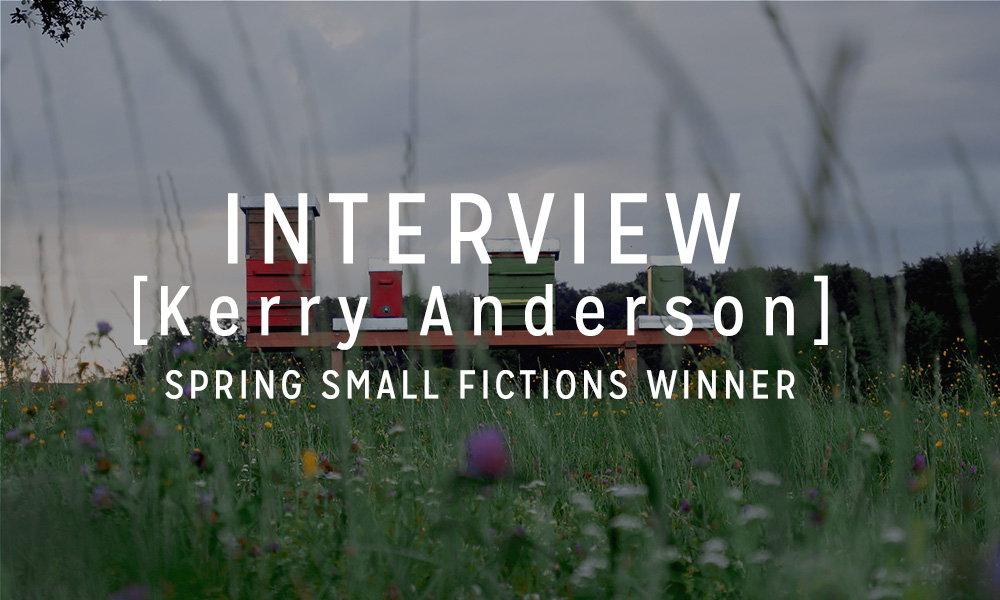Kerry Anderson’s “Nectar” was chosen by K-Ming Chang as the runner-up in the Sudden Fiction category of our 2023 Spring Small Fiction Awards. Be sure to read the story that Chang called a “stunningly original story… a gift,” and then check out our interview with the writer below!

I’ll start with the obvious question—where did the idea for this story originate?
The first image that came to me was the one of daemons spilling out of the narrator at her place of work, creating a mess for everyone to see. Around the same time, my brother-in-law was talking about his beekeeping apprenticeship and that was the second image, of bees clustering in their hive, filling honeycombs with golden, dripping nectar. I felt that I needed to find the story between these two images.
This story feels like a metaphor for maybe more than one thing—childbearing, for one, but also illness (in the way they scar the body upon exit, the way they coat surfaces and cause people to scatter, the way they can be misunderstood). I wonder if you can speak to the intended metaphor of this piece and your feelings on how, once a story is out in the world, it can be interpreted differently by different people.
The metaphor that developed from the initial images was that traumatic experiences (the bees/daemons/beasties) leave traces (the nectar, the scars) that we can’t always hide.
I love stories because I think we are wonky truth-tellers at best. Stories transcend the storyteller and belong to the reader. Whatever a reader sees in this story is exactly right.
I particularly love the Hivekeeper and Uber driver because they both, in their own way, lend a sense of levity and humanity to the story. What do you see as the function of these characters?
Thank you for loving them! I loved them too. First drafts of the story were wrong because they lacked what these two brought. For me the Hivekeeper is a hairy, naked, nectar-covered symbol of joy. He may or may not actually have any answers but whatever he has found is enough for him. Through him, the narrator is able to see her daemons differently.
The Uber driver is more ambiguous. She could be a glimpse into the narrator’s future or she could be part of the narrator’s future. She offers no judgment, just some good, practical advice. I think she’s a little like hope.
I’m always impressed when people pull off stories in these very short formats. Is the sudden/micro/flash where you feel most comfortable writing? If not, how was this piece different from what you usually write?
I love short forms for the purity of craft—tell a story, tell it well. I am working on a novel and I find that every time I get stuck there, trying to figure out how to get past a knot, I come back to something that’s 1,500 words or less. It’s like a warm hug in an ice bath.
And finally, what does your writing practice look like? Are you a daily writer? In the morning or evening? With music or completely quiet?
I write every day for a few hours. It’s not that I’m a better person if I do, but I’m definitely a worse person if I don’t. Mornings are best but some days I have to take what I can get between cats, family, and work. I like to write with a friend on the other side of a zoom call. I like to write to a soundtrack of rain. I can write in a crowded place if I have to but it feels like I’m sitting there naked, covered in nectar.
Interviewed by Jen Dupree
